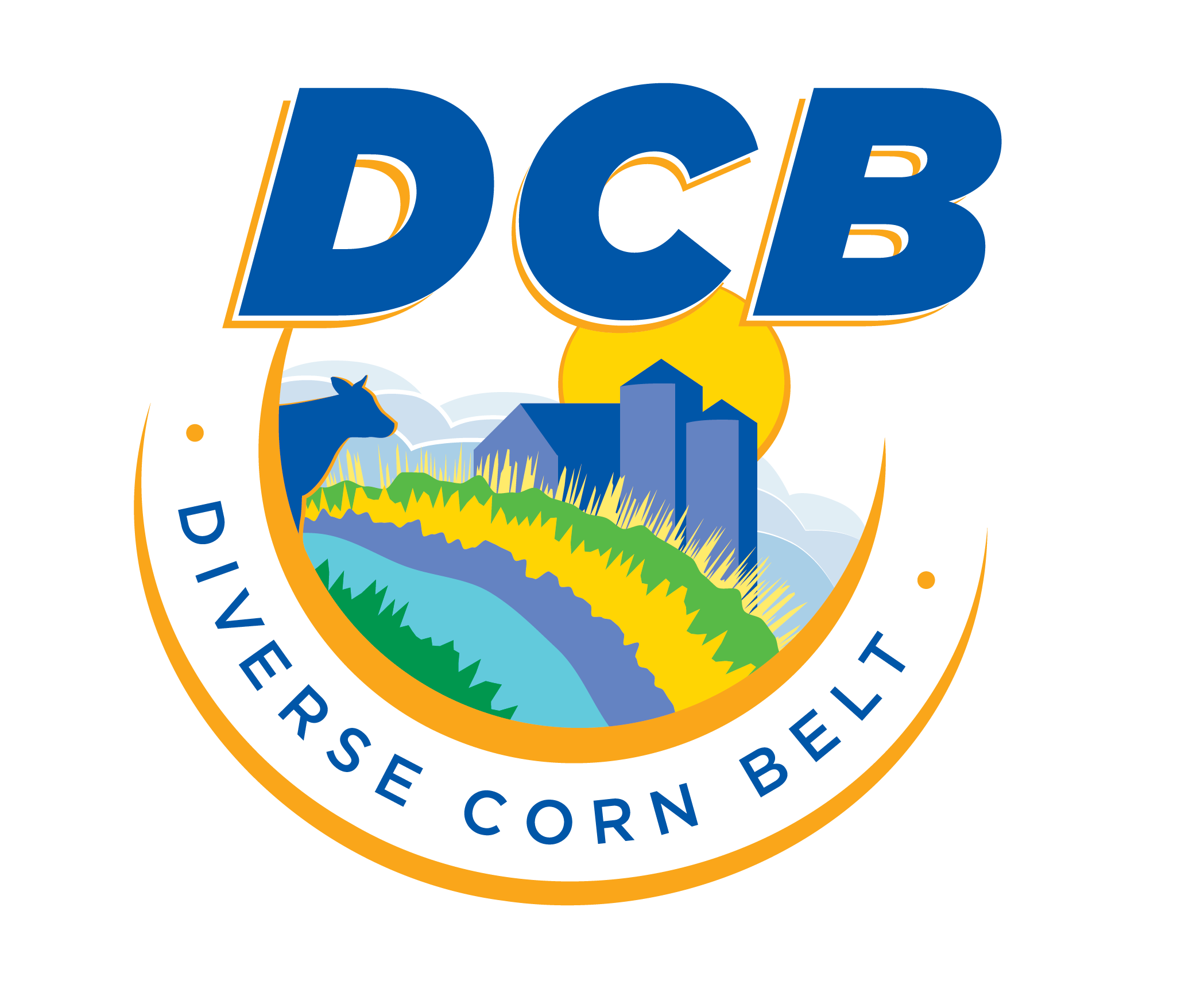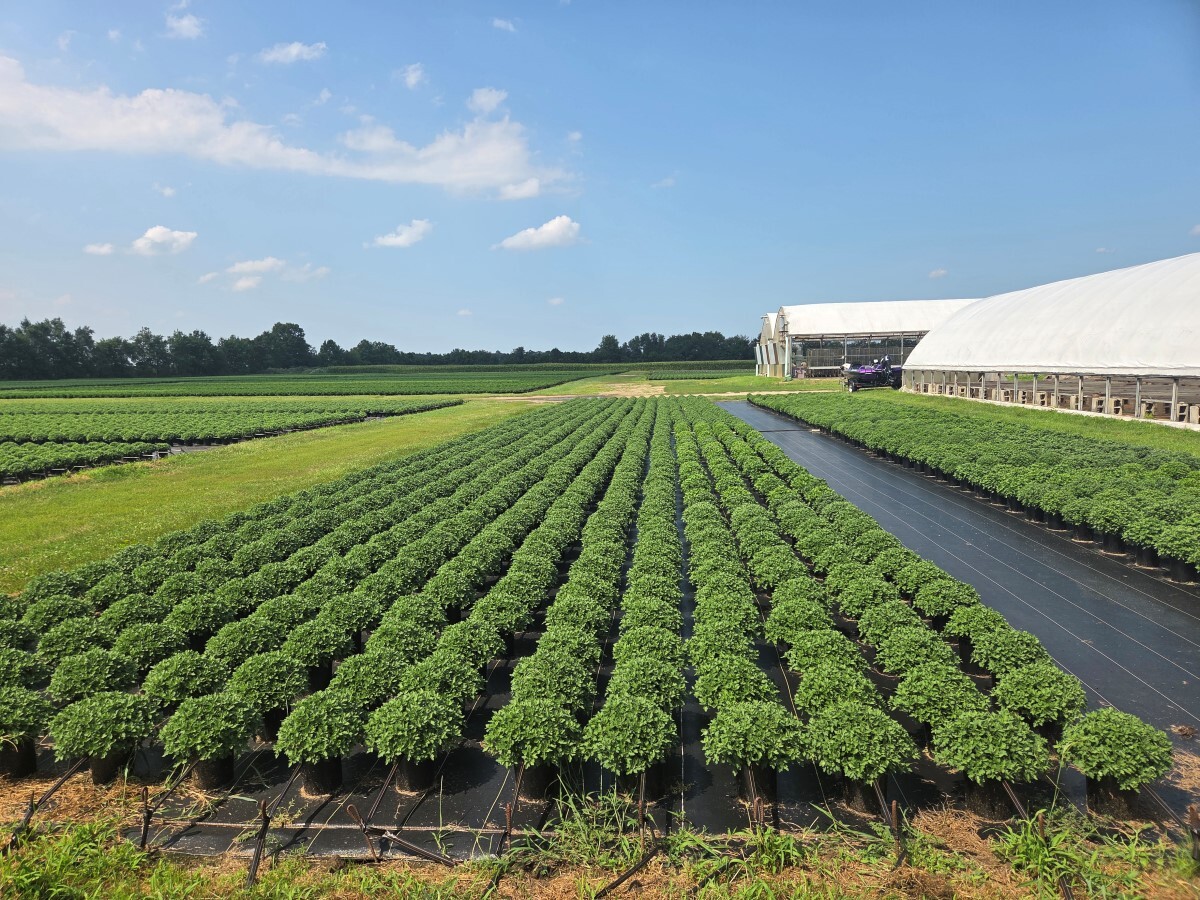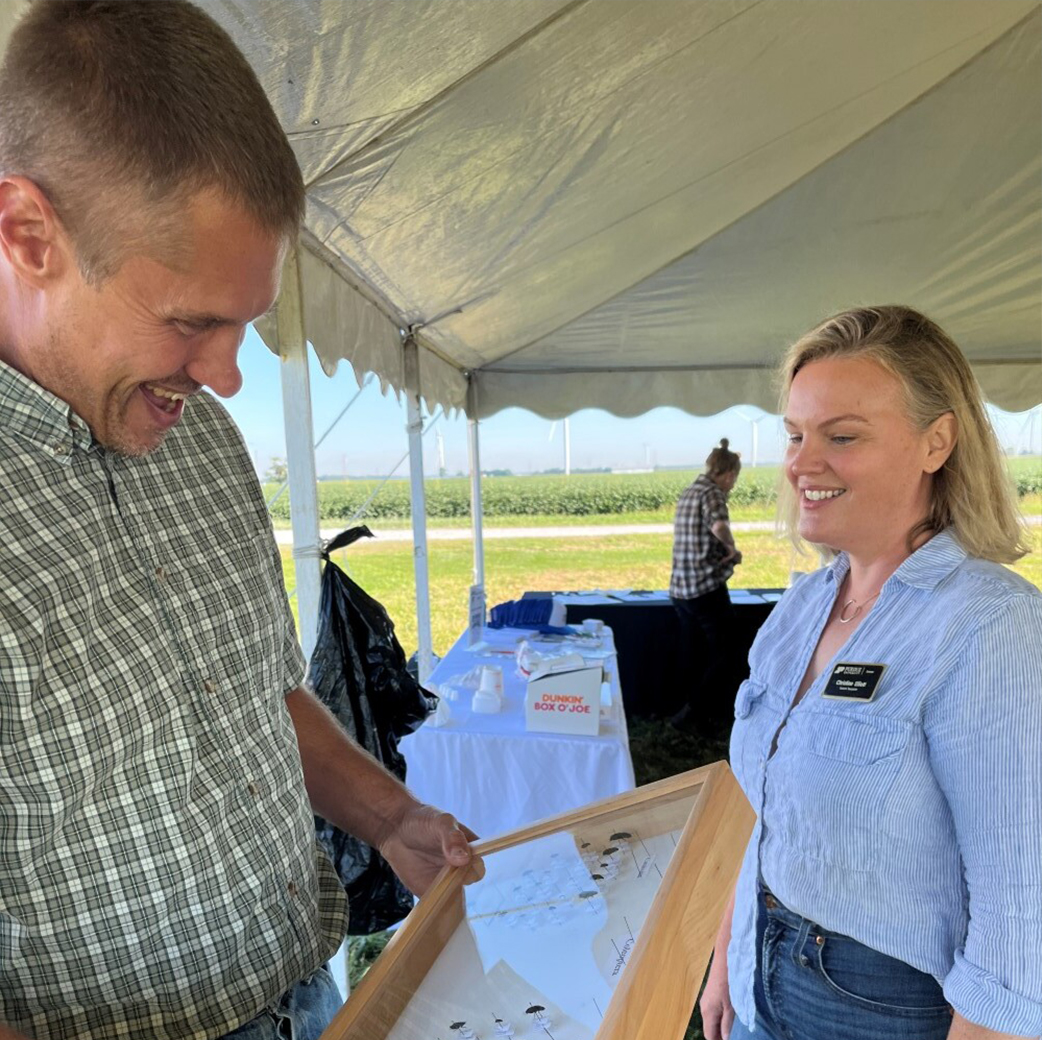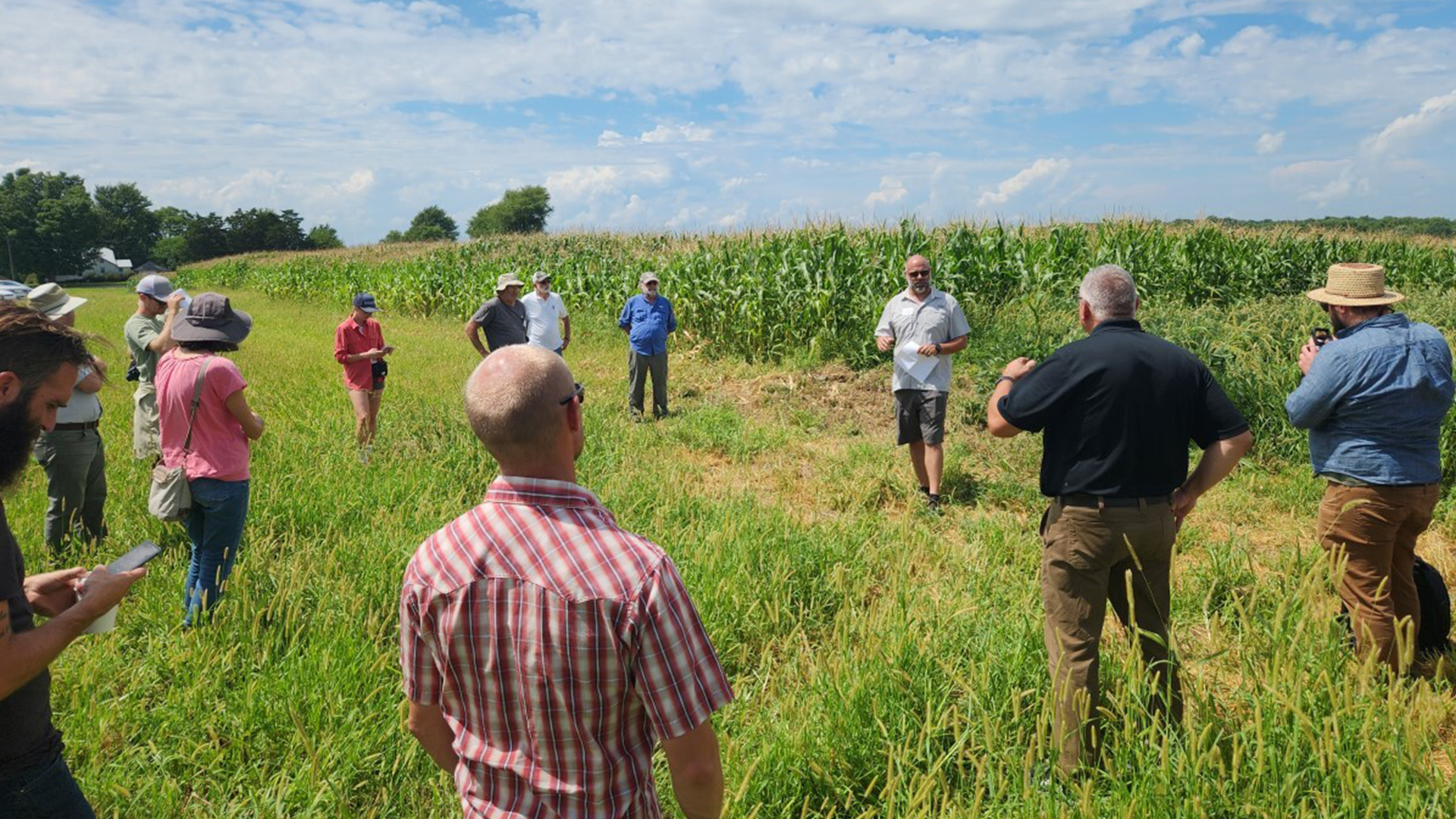
Joe Mills discusses organic corn and soybean production with attendees of the first Indiana Diverse Farm Tour Aug. 12 in Montgomery and Fountain Counties.
This summer, DCB Team members spoke at several field days, ranging from water quality, insect control, and weed management. DCB also supported field days and hosted a farm tour series in northwest and west central Indiana.
Acres USA Farm Weird
At the Acres USA Farm Weird event, host Jason Mauck inspired the crowd to think differently and farm year-round with diverse crops. At the DCB booth, team members spoke with farmers, retailers, and more about understanding opportunities and barriers that farmers in the Midwest face.
Farmer-to-Farmer Conservation Commodity Field Day
In July, DCB supported the Farmer-to-Farmer Conservation Commodity Field Day in Lake and Porter Counties, Indiana. This event featured farms that add a crop rotation, diversify, and build market channels for diversified crops.
Tom Murphy is a producer at Meadowbrook Farm, part of the Shirley Heinze Land Trust. During the field day, he described and showed equipment for some of his key practices, including no-till, cover crops, grassed waterways, and fertilizer application in multiple small amounts to increase plant uptake and reduce nutrient runoff.
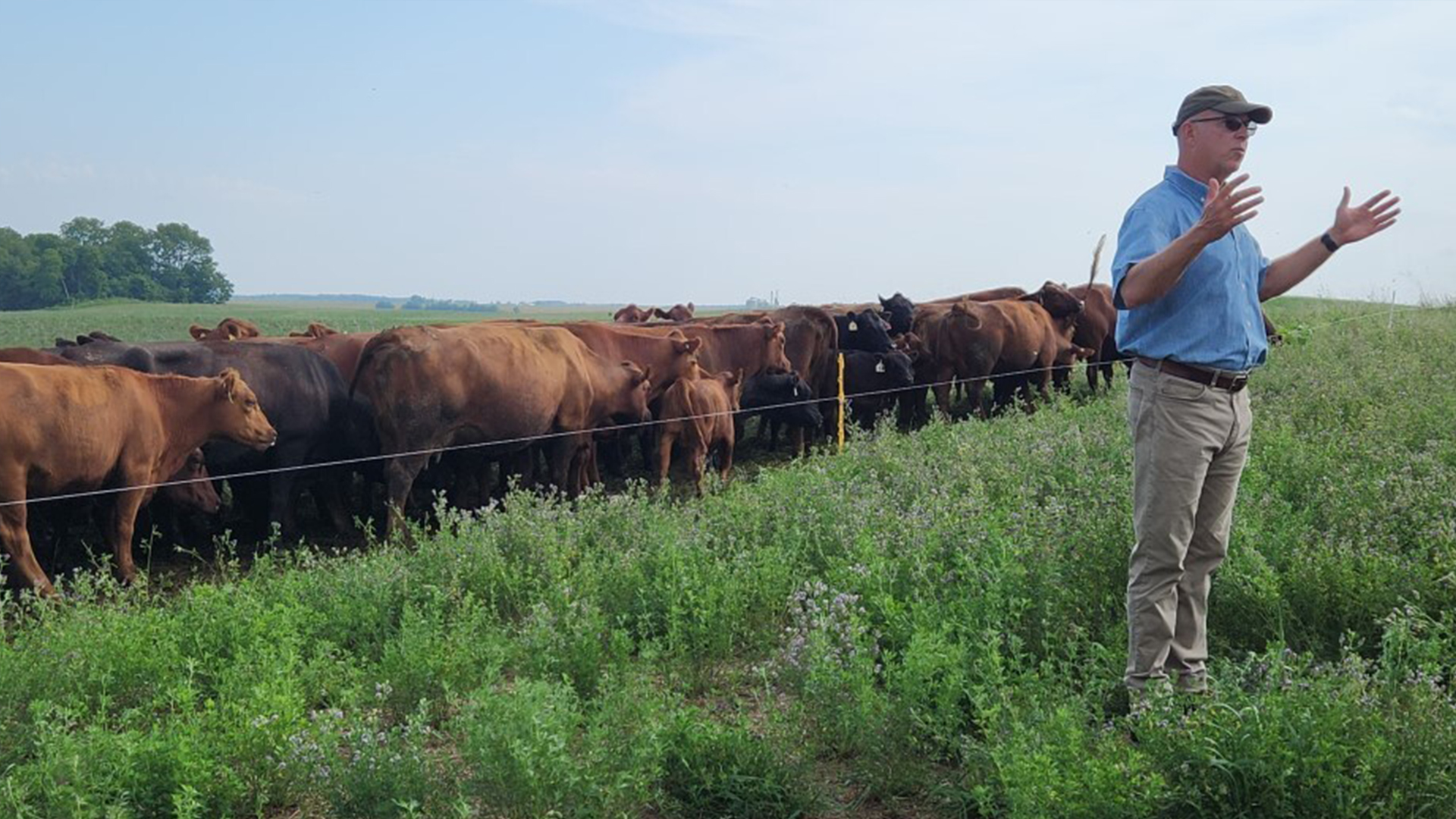
At the first Indiana Diverse Farm Tour, Dan DeSutter discusses the value of pasture and grazed livestock in rotation with organic corn and soybeans.
Indiana Diverse Farm Tours
During August, the DCB Extension committee invited people to the field for the Indiana Diverse Farm Tours, which highlighted several types of farming systems in northwest and west central Indiana.
The first tour on Aug. 12 showcased organic corn and soybeans, pasture, and grazed livestock at DeSutter Farms in Fountain County and Mills Farms in Montgomery County. Speakers from the farms, Purdue University, University of Illinois, and the Iowa Geological Survey discussed how farm management practices affect groundwater, weeds, insect pests, and beneficial insects.
Producer Joe Mills talked about his organic corn and soybean operation. Attendees saw fields enrolled in a Purdue research trial investigating how organic production methods influence insects. Producer Dan DeSutter spoke on the value of pasture and grazed livestock in rotation with organic corn and soybeans.
Purdue entomologist Coy St. Clair shared data from a multi-state, USDA-funded study showing the effect of cover cropping and mixed cropping on insect population diversity on organic farms.
“Improved insect diversity supports beneficial insects that provide services to the farmer, such as preying on pest insects or eating weed seeds and reducing weed pressure,” St. Clair says. “All of the farmers I talked to were very interested in our data and how beneficial insects can improve their farms.”
During the second Indiana Diverse Farm Tour on Aug. 13, attendees visited Van Kley’s Blueberries and Henning’s Farm and Greenhouses in Jasper County to see blueberries, organic grains, and fall mum production. Producers at Van Kley’s demonstrated blueberry harvest equipment (video here). Producers and Purdue specialists spoke on pruning, grain roots, transitioning to organic, and diversifying a farm.
Purdue postdoctoral researcher Juliano Marques spoke on market segmentation and shared preliminary results from the work of the DCB Markets Team.
“It is crucial not only to showcase agricultural diversification on-farm, but also to provide farmers with actionable market information,” Marques says. “Too often, demand insights are concentrated among food processors and rarely reach farmers directly. Opportunities like the farm tours help bridge that gap, encouraging farmers to diversify and market their products more effectively, while also signaling to agribusinesses the untapped potential of diversified agricultural markets.”
The third and final Indiana Diverse Farm Tour on Aug. 27 focused on organic popcorn, sunflowers, small grains, and equipment at Living Prairie Farms in White County. Purdue and University of Illinois speakers highlighted diversity of weeds and insects. Jason Federer, producer at Living Prairie Farms, was presented with a display box of pinned insects found on his farm during DCB’s In-Field Team’s monitoring.
These on-farm tours showcased DCB’s work and highlighted what’s possible in diverse agriculture systems. St. Clair says events where farmers can see management tactics and meet other people with similar questions “act as a support system.”
“When farmers have questions about certain practices, it is highly beneficial to see those practices in action,” St. Clair says. “It can be an intimidating step to branch out and change your farm in a meaningful way, and seeing how others manage it and realizing that you aren’t the only person with questions, can help farmers feel more comfortable in taking that next step.”
Demonstrating that diversification is happening now and that it can be done is one step toward a more resilient landscape.
This article was written by DCB Communications Team Member Elise Koning, project director for the Conservation Technology Information Center.
